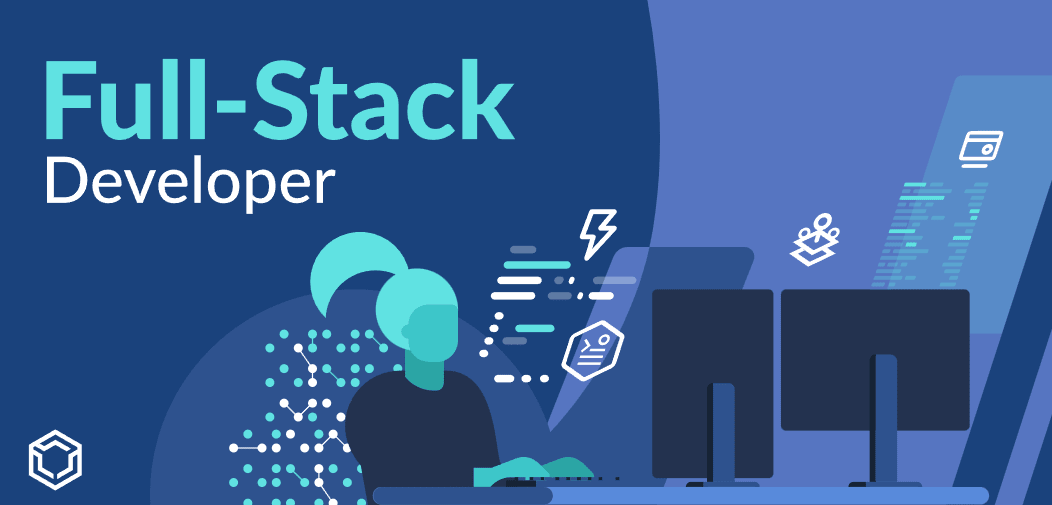
Full-Stack Developer
The Growing Demand for Industrial Full-Stack Developers
The tech industry is constantly evolving, and with the rise of Industry 4.0, there's an increasing demand for professionals who can bridge the gap between front-end and back-end systems. Industrial Full-Stack Developers are at the forefront of this evolution, creating integrated solutions that support everything from manufacturing processes to supply chain logistics. In this article, we'll explore what it means to be an Industrial Full-Stack Developer, the skills required, and how these professionals are shaping the future of industries across the globe.
What is an Industrial Full-Stack Developer?
An Industrial Full-Stack Developer is a technology professional skilled in both the front-end and back-end development of web applications and systems used in industrial settings. This role requires a deep understanding of the full stack of technologies, including databases, servers, APIs, and user interfaces, specifically designed for industrial applications. These applications may support automation, monitoring, logistics, supply chain management, robotics, data analytics, and more.
Full-Stack Developers typically work on projects that involve:
- Embedded Systems: Integrating software with hardware to control and monitor industrial machinery.
- IoT (Internet of Things): Developing systems to connect devices in manufacturing processes for real-time data collection and control.
- Enterprise Resource Planning (ERP) and Manufacturing Execution Systems (MES): Developing and integrating complex backend systems that optimize production workflows.
Skills Required for Industrial Full-Stack Developers
The role of an Industrial Full-Stack Developer demands a broad skill set across various layers of software development. Here’s a breakdown of the essential skills:
1. Front-End Development Skills
The front-end of industrial applications is responsible for the user interface (UI) and user experience (UX). For an Industrial Full-Stack Developer, this includes:
- HTML/CSS/JavaScript: The foundation of web-based user interfaces.
- React, Angular, or Vue.js: Modern JavaScript frameworks for building dynamic and responsive interfaces.
- Data Visualization: Tools like D3.js, Chart.js, or specialized platforms for displaying industrial data clearly and intuitively.
2. Back-End Development Skills
The back-end supports the logic, database interactions, and the underlying architecture of industrial systems. Important back-end technologies include:
- Node.js, Python, Java, or C#: Popular back-end programming languages.
- RESTful APIs / Web Services: Integrating systems for data exchange between front-end interfaces and databases.
- Database Management: Knowledge of SQL (MySQL, PostgreSQL) and NoSQL (MongoDB) databases for storing and managing industrial data.
3. Industrial and IoT Integration
- Industrial Protocols: Knowledge of protocols like MQTT, OPC UA, Modbus, and BACnet for industrial automation systems.
- IoT Integration: Understanding how to connect devices, sensors, and machines to the cloud or on-premise servers to enable smart manufacturing.
4. Cloud Computing & DevOps
Industrial systems are increasingly hosted on cloud platforms for scalability and accessibility:
- AWS, Azure, Google Cloud: Cloud platforms for hosting applications and databases.
- Docker, Kubernetes, Jenkins: Tools for managing, deploying, and automating industrial applications.
5. Cybersecurity
In industrial environments, security is critical to prevent cyberattacks on production lines or sensitive data:
- Encryption & Authentication: Securing data transmission and access.
- Vulnerability Management: Ensuring systems are secure against threats, especially in IoT networks.
Why Are Industrial Full-Stack Developers Important?
In the past, industrial systems and software were siloed, with different teams working on hardware, software, and data analysis separately. However, modern industrial environments require integrated systems to optimize efficiency, improve safety, and enhance productivity. Here’s why Industrial Full-Stack Developers are crucial:
- Cross-Platform Integration: Industrial environments often have various hardware and software systems that need to work together seamlessly. Full-Stack Developers ensure these systems communicate effectively.
- Automation and Efficiency: They help automate processes, monitor equipment in real-time, and optimize production workflows.
- Data-Driven Insights: By integrating data analytics, Full-Stack Developers create dashboards and interfaces for monitoring KPIs (Key Performance Indicators) that drive decision-making in industrial processes.
The Future of Industrial Full-Stack Development
As Industry 4.0 continues to reshape manufacturing, logistics, and production, the role of the Industrial Full-Stack Developer will only grow. These developers will be tasked with:
- Developing smarter, more intuitive interfaces that make it easier for industrial operators to monitor and control systems.
- Building AI-powered systems that enable predictive maintenance and real-time decision-making.
- Integrating new technologies, such as augmented reality (AR) and virtual reality (VR), to improve training and operational efficiency in industrial environments.
How Sharaa Group Is Supporting the Industrial Tech Revolution
At Sharaa Group, we recognize the importance of skilled Industrial Full-Stack Developers in helping businesses transition to more connected, efficient, and intelligent operations. Our team is dedicated to providing the best talent in the industry, ensuring that our clients stay at the cutting edge of industrial technology.
If you're looking to hire an Industrial Full-Stack Developer or if you're a developer looking for opportunities in this space, Sharaa Group offers expert recruitment services tailored to your needs. Get in touch with us to learn more about how we can help you grow your team or advance your career in the ever-evolving tech landscape.
Conclusion
The demand for Industrial Full-Stack Developers is on the rise as industries embrace digital transformation. These professionals are key players in integrating cutting-edge technologies like IoT, cloud computing, and automation into manufacturing processes, ensuring that companies stay competitive in a fast-paced world. If you’re looking for a challenging and rewarding career, or need help finding top talent, the opportunities in industrial tech are abundant.

